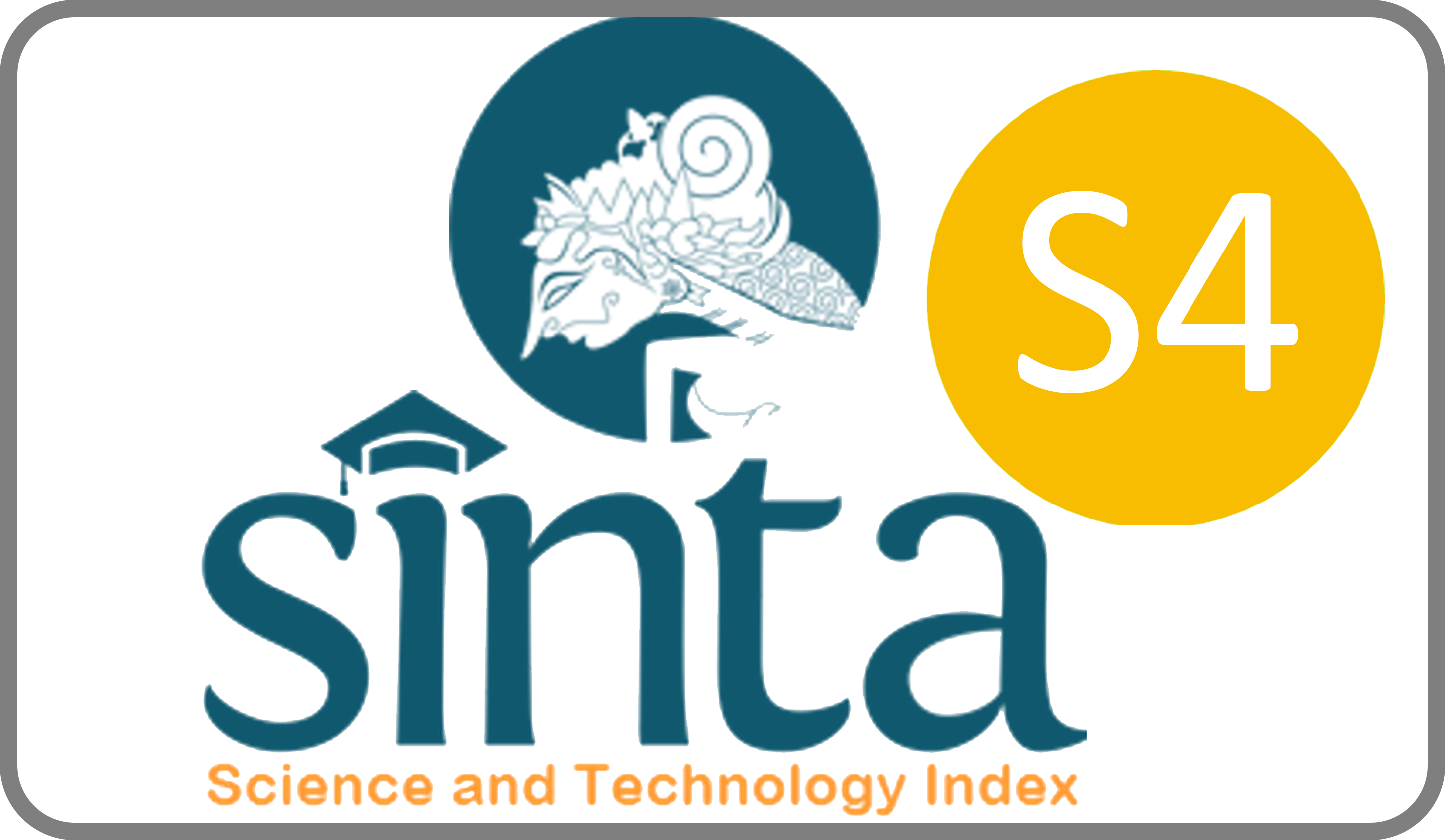COMMUNITY DEVELOPMENT THROUGH EDUCATION ON THE PROCESSING OF HOUSEHOLD WASTE INTO COMMERCIAL PRODUCTS
Downloads
Community empowerment and household waste processing are two issues that need to be resolved by the government. An independent and educated society is an important pillar to support the development of country. Meanwhile, waste that continues to accumulate without processing has a negative impact on health and the environment. Public education about household waste processing can be a solution to the two problems above. Education was carried out at Junior High School YBPK Surabaya and residents of Dukuh Kupang Surabaya, and other participants who joined in a hibrid meeting with a total of 116 participants. Activities at YBPK Surabaya took place on 25 March and 5 August 2023 and activities at Dukuh Kupang Surabaya took place on 27 May and 26 August 2023. The types of waste processed are organic waste and used cooking oil, which are then converted into eco-enzymes and used cooking oil Activities are divided into 2 stages. there are community education activities and program sustainability monitoring activities. The community education activities includes presentation and workshop were hold in March 2023 at YBPK Surabaya Middle School and May 2023 at Dukuh Kupang Surabaya. The evaluation of sustainability program including individual practice and monitoring of activities was carried out in August 2023 at Dukuh Kupang Surabaya. Methods for implementing activities include presentation, practice accompanied by a mentor, individual practice, and monitoring program sustainability. Based on the analysis of participants' ability, the participant scores before and after the activity was increase. It means that this training succeeded in increasing participants' knowledge and skills in processing waste, especially organic waste and used cooking oil waste. A total of 72 out of 116 participants (62%) had processed household waste either individually or in groups. Activity evaluation data shows that these activities are necessary and on target to create an independent and creative society.
Aminudin dan Nurwanti, 2019.” Pemanfaatan Sampah Plastik Menjadi Kerajinan Tangan Guna Meningkatkan Kreatifitas Warga Sekitar Institut Teknologi dan Bisnis Ahmad Dahlan (ITB-AD) Jakarta.” Jurnal Abdimas BSI 2(1): 66-79.
Andina, E., 2019. “Analisis Perilakuk Pemilahan Sampah di Kota Surabaya.” Aspirasi: Jurnal Masalah-Masalah Sosial 10(2): 119-138.
Aristoteles, Miswar, D., Bernando, S.D.A.H., Prayoga, A., Wulandari, N.A., Yasami, I.E., Prambudiningtyas, D.M., Laksono, K.A., Hutauruk, G.A., 2021.”Pembuatan Pupuk Kompos Dari Limbah Organik Rumah Tangga Di Desa Gedung Harapan, Kecamatan Jati Agung, Lampung Selatan.” Jurnal Pengabdian Kepada Masyarakat BUGUH 1(1): 17-24.
Bappedalitbang Surabaya, 2022, “Strategi Sanitasi Kota Surabaya 2022-2026” https://bappedalitbang.surabaya.go.id/images/File%20Upload/Laporan%20SSK%20Surabaya%202022-2026.pdf
Dermawan, Lahming, Mandra, M.A.S., 2018. ”Kajian Strategi Pengelolaan Sampah” UNM Environmental Journal 1(3): 86-90.
Hasibuan, R., 2016, “Analisis Dampak Limbah/Sampah Rumah Tangga Terhadap Pencemaran Lingkungan Hidup.” Jurnal Ilmiah Advokasi 4(1) : 42-52.
Hodijah, S., Parmadi, Hastuti, D., Heriberta, 2021. “Pemberdayaan Perempuan Melalui Pemanfaatan Limbah Rumah Tangga Menjadi Kerajinan Tangan.” Jurnal Innovasi, Teknologi, dan Dharma Bagi Masyarakat 3(1): 21-28.
Kristianto, A., dan Rosariawari, F., 2022. ”Penerapan Konsep Pengelolaan Sampah Rumah Tangga Dengan Metode 5R (Reduce, Reuse, Recycle, Replace, And Replant) Berbasis Masyarakat Di Wilayah Kebraon Kota Surabaya.“ Envirous 2(2): 63-69.
Nuraisyah, F., Solikhah, S., Rulyandari, R., 2021. ”Pengetahuan, Sikap, dan Perilaku Masyarakat Dalam Pemilahan dan Pengolahan Sampah.“ Journal of Community Service and Research 5(2)“ 58-61.
Rini, W.N.E., Butar, B.M., Lesmana, O., 2022. “Edukasi Pengelolaan Limbah Rumah Tangga.“ Jurnal Salam Sehat Masyarakat 4(1): 7-11.
Paradita, L.I., 2018. “Pemilahan Sampah: Satu Tahap Menuju Masyarakat Mandiri Dalam Pengelolaan Sampah.“ Jurnal Berdikari 6(2): 184-194.
Saputra, A.Z dan Fauzi, A.S. “Pengolahan Sampah Kertas Menjadi Bahan Baku Industri Kertas Bisa Mengurangi Sampah di Indonesia”, Jurnal Mesin Nusantara 5(1): 41-52.
Simatupang, M.M., Veronica, E., Irfandi, A., 2021. “Edukasi Pengelolaan Sampah : Pemilahan Sampah dan 3R di SDN Pondok Cina Depok.“ Prosiding Hasil Pengabdian Masyarakat, Universitas Esa Unggul Jakarta
Sutanta, Hasbi, H.A., 2021. “Pengelolaan Sampah Rumah Tangga Menjadi Bernilai Ekonomi.“ Jurnal Teknologi Tepat Guna 2(1): 30-34
Waskito, A., Rahayu, Meydina, G. J., Fitria, D., Nesty, D., Putri, A.T., 2021. “Penyuluhan dan Edukasi Kepada Masyarakat Terkait Pengelolaan Sampah.“ ILUNG : Jurnal Pengabdian Inovasi Lahan Basah Unggul 1(2): 35-45.
Copyright (c) 2024 Alfa Akustia Widati, Tokok Adiarto, Mochamad Zakki Fahmi, Antonius Budi Prasetyo, Handoko Darmokoesoemo, Ganden Supriyanto, Sri Sumarsih, Aning Purwaningsih, Miratul Khasanah, Hartati Hartati, Afaf Baktir, Sofijan Hadi, Purkan Purkan, Yanuardi Raharjo, Fatiha Khairunnisa, Qurrota A'yuni, Ni Nyoman Tri Puspaningsih, Lee Hwei Voon

This work is licensed under a Creative Commons Attribution-ShareAlike 4.0 International License.
JLM by Unair is licensed under a Creative Commons Attribution-ShareAlike 4.0 International License.
1. The journal allows the author to hold the copyright of the article without restrictions.
2. The journal allows the author(s) to retain publishing rights without restrictions
3. The legal formal aspect of journal publication accessibility refers to Creative Commons Attribution Share-Alike (CC BY-SA).
4. The Creative Commons Attribution Share-Alike (CC BY-SA) license allows re-distribution and re-use of a licensed work on the conditions that the creator is appropriately credited and that any derivative work is made available under "the same, similar or a compatible license”. Other than the conditions mentioned above, the editorial board is not responsible for copyright violation.


















